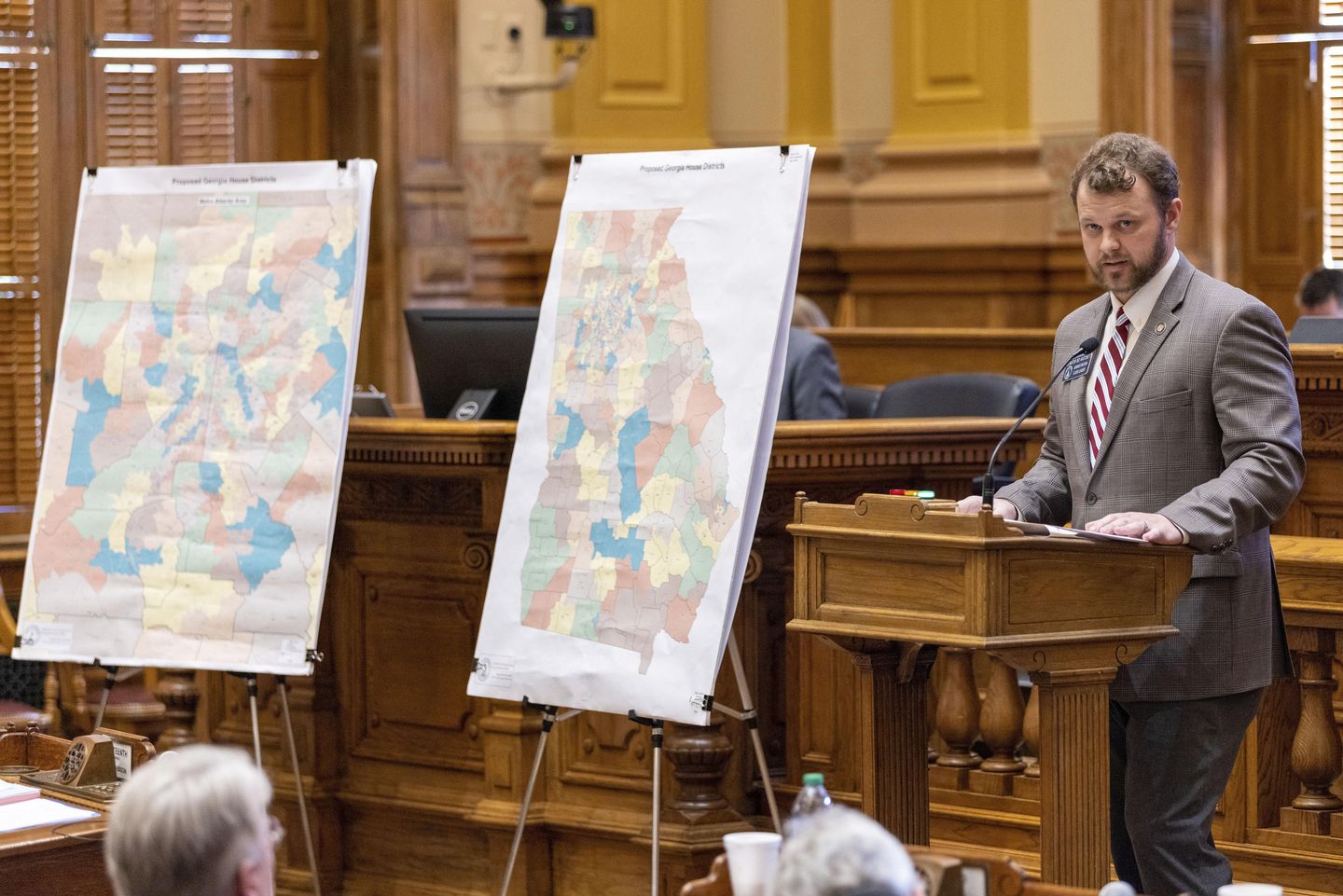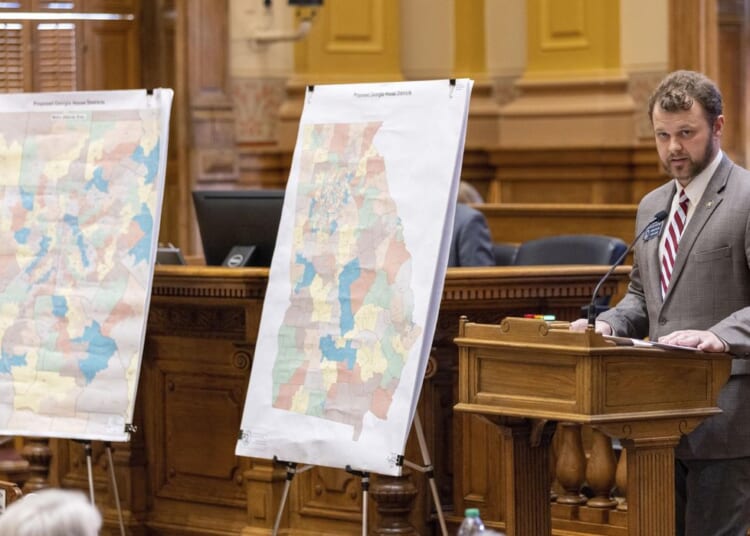
ATLANTA — A federal judge on Thursday accepted new Georgia congressional and legislative voting districts that protect Republican partisan advantages, saying the creation of new majority-Black voting districts solved the illegal minority vote dilution that led him to order maps to be redrawn.
U.S. District Judge Steve Jones, in three separate but similarly worded orders, rejected claims that the new maps don’t do enough to help Black voters. Jones said he can’t interfere with legislative choices, even if Republicans moved to protect their power. The maps were redrawn in a recent special legislative session after Jones in October ruled that maps drawn in 2021 illegally harmed Black voters.
The maps added Black-majority districts that Jones ordered, including one in Congress, two in the state Senate and five in the state House. But in some Democratic-held districts without Black majorities, Republicans redrew the maps to favor themselves. One of those is Democratic U.S. Rep. Lucy McBath’s 7th Congressional District in suburban Atlanta.
McBath said she would seek reelection in 2024 in the new 6th Congressional District in Fulton, Cobb, Douglas and Fayette counties if the current congressional map is not overturned on appeal. It would be the second election in a row that she has had to run in a new district. The first, in 2022, was after the district she originally won was redrawn to favor Republicans.
McBath said in a statement that she wouldn’t “allow an extremist few Republicans” to “decide when my work in Congress is finished.”
The redrawing of the districts this year was among numerous redistricting actions that took place across the South after the U.S. Supreme Court upheld the 1964 Voting Rights Act in June, clearing the way for Black voters to win changes from courts. But while a case in Alabama will almost certainly result in another Democrat joining its congressional delegation, the Georgia case has played out differently.
That’s because Section 2 of the Voting Rights Act protects minority voters, but doesn’t stop Republicans from tinkering with Democratic-held districts with white majorities or where no ethnic group is in the majority. So, Georgia Republicans redrew maps while giving up few seats to Democrats.
The judge’s approval of Georgia’s redrawn maps sets the stage for their use in 2024 elections. Their implementation is likely to reproduce the current 9-5 Republican majority among Georgia’s 14 congressional seats and a 33-23 GOP margin in the Senate. Democrats are likely to gain one or two seats in a state House that now has a 102-78 Republican margin.
Plaintiffs and allied Democrats denounced the ruling, but none immediately said they would appeal. Time for an appeal is short because the 2024 elections are near.
“The Republican maps are an ongoing Voting Rights Act violation. Period,” state Senate Minority Leader Gloria Butler, a Stone Mountain Democrat, said in a written statement.
American Civil Liberties Union lawyer Ari Savitsky, who represents challengers to state legislative maps, said the new maps “don’t provide a complete fix for the injuries to Black voters that we proved in court.”
“Federal law requires an end to vote dilution everywhere and a real change for injured voters, not reshuffling the same deck,” Savitsky said.
Republicans said the ruling proves they could comply with the order to draw more majority-Black districts while preserving their power. In a written statement, House Speaker Jon Burns, a Newington Republican, called the ruling “a validation of what we put forward.”
The voters and civic groups who sued to overturn the 2021 maps claimed the new ones didn’t fix problems in districts Jones had labeled as illegal. But Jones said lawmakers weren’t confined to reworking only those districts, and that plaintiffs’ objections weren’t enough for him to reject the maps. If he had, he could have adopted maps offered by the plaintiffs or drawn his own.
Jones echoed the state’s claim that approving redrawn maps was not a beauty contest.
“To put it more starkly, plaintiffs contend that their illustrative plans are better remedies than the state’s remedial plans,” he wrote. “Because this court cannot intrude upon the domain of the General Assembly, however, it declines plaintiffs invitation to compare the 2023 remedial plans with plans preferred by plaintiffs and crown the illustrative plans the winners.”
Arguments on the congressional map focused on whether it was legal for lawmakers to dissolve McBath’s district in Gwinnett and Fulton counties – while at the same time drawing a new Black-majority 6th District west of downtown Atlanta. The plaintiffs argue that the state, by dissolving the current 7th District, is newly violating the guarantee of opportunities for minority voters spelled out in Section 2 of the federal Voting Rights Act. The 7th District is majority nonwhite, but not majority Black, with substantial shares of Hispanic and Asian voters as well.
Jones said he didn’t have the evidence needed to act on a Voting Rights Act claim: that Black, Hispanic and Asian voters in the 7th District act as a coalition to elect their choices. He told the plaintiffs they’d have to file a new lawsuit to pursue claims that wiping out McBath‘s current district illegally harms minority voters.











